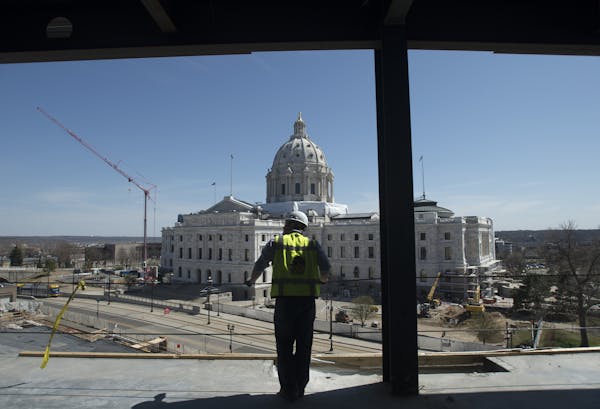Gov. Mark Dayton and House Speaker Kurt Daudt will begin negotiations over a special session on Tuesday, with the governor saying he hopes to convene the session by early June.
In a Wednesday news conference, Dayton said he still plans to veto the $17 billion education bill, but will most likely decide the fate of other budget bills by Saturday, after his staff has spent the week assessing their contents. He noted that any special session he calls would have "tight limits" on its scope.
Negotiations over special sessions take on outsized importance because in Minnesota only the governor can call the Legislature into special session, but the Legislature determines when it is done. That typically results in the two branches agreeing on an exacting definition of the session's parameters.
In anticipation of a possible reset, interest groups and legislators have produced an outpouring of requests urging the governor to veto other budget bills because of certain policy provisions.
Audubon Minnesota, Conservation Minnesota and others recommended Dayton reject the environment budget bill. House Minority Leader Paul Thissen, DFL-Minneapolis, would like the jobs bill rejected over concerns it was rammed through in the session's final hour. State Auditor Rebecca Otto argues her office would be undermined by a provision in the state government budget bill that allows counties to outsource audits now done by Otto's staff.
Where to go?
That legislators will have to reconvene is certain. The E-12 bill is one of the largest in state government. Where legislators will convene is still up in the air. State officials are unsure of the venue, but the state Constitution stipulates it must be held in St. Paul.
The fight will be largely over education funding. Dayton is unsatisfied by the lack of money for universal prekindergarten, and he said Wednesday that his 11th-hour offer of dropping his top priority of preschool in exchange for more school funding is now off the table.
Heading into a special session, House GOP leaders are pushing back against assertions that their caucus is to blame for the pending veto of the education budget bill.
"It's not on Republicans," Daudt said. "Remember, it didn't also pass out of the [DFL] Senate."
Daudt said that his caucus had compromised significantly by offering roughly $300 million in additional spending above its original proposal. He said the caucus also offered more money in per-pupil aid than the overall 2 percent increase Dayton and Senate DFLers had originally proposed.
Ahead of the special session, Daudt said the GOP's priority will be to push for even more funding in per-pupil aid.
The education budget approved Monday represented an 8 percent increase from the previous two-year budget of $15.8 billion for public schools. It contained increases of 1.5 percent in 2016 on the basic school funding formula and 2 percent in 2017.
The GOP-led House voted 71-59; the DFL-led Senate voted 52-14. Senate leaders said they supported the governor's position on education, but said they were unable to convince House GOP leaders to agree to the higher spending.
Senate DFLers on Wednesday said they planned to stand with the governor in his insistence for expanded early-learning programs offered through public schools. Over the objections of Republicans, they and Dayton would require that licensed teachers provide preschool instruction.
"I have sent my two oldest sons to preschool before, and I can tell you personally how effective this program is at preparing our children for kindergarten," said Sen. Katie Sieben, DFL-Cottage Grove.
Staff writer J. Patrick Coolican contributed to this report.
Ricardo Lopez • 651-925-5044
